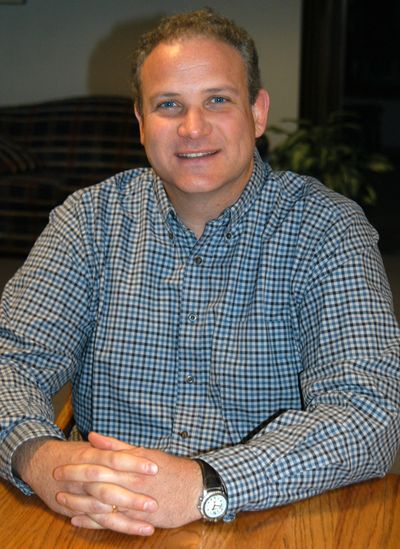‘Faith and Politics’
Courses planned by Whitworth minister

Given the questions people of faith have about involvement in politics, the Rev. Todd Cioffi, assistant professor of theology at Whitworth University, is teaching courses on “Faith and Politics” at two Spokane Presbyterian churches during October, November and December.
Discussions will provide historical perspectives on the relationship between the church and the political realm, framed through the Reformed tradition. Sessions also will look at the Christian right and left in American politics and explore possibilities of moving beyond “right” and “left” in politics and faith.
An ordained Presbyterian minister, Cioffi has been teaching philosophy, Bible, church and society, and Christian political thought at Whitworth since September 2007.
A series of five sessions will be held at 10:15 a.m. Sunday and Oct. 19 and 26 at Knox Presbyterian Church, 806 W. Knox Ave.
The sessions at his church, Manito Presbyterian, 401 E. 30th Ave., will be part of the Sunday morning adult education program on the first Sundays of November and December. He also has taught a series there critiquing U.S. use of torture.
“I’m offering one session after the election, so we can look at what the candidates said and find ways to be involved,” said Cioffi.
He graduated from Hope College in his hometown of Holland, Mich., with a bachelor’s degree in philosophy in 1988, and earned a Master of Divinity in 1993 at Princeton Seminary in New Jersey.
For the next seven years, Cioffi served in diverse forms of ministry. He taught philosophy and religion at a boarding school in Connecticut for two years, worked with homeless people in Atlanta, served as co-pastor of an African-American church in Detroit and taught moral theology at Detroit Jesuit High School.
Cioffi pointed out that the divisions between conservative and liberal have taken place many times in the history of the church, so “we have a wealth of resources for thinking through the issues.”
From the point of view of Reformed churches, Christians “can and should be involved in politics, not to further their own Christian agendas but to work for the common good,” he said.
While media have in recent years seemed to assume that the Christian right was “the” point of view of the Church, and while the left has tried to push religion out of politics, he considers neither approach helpful.
“We need to look at resources and language that will move us beyond right and left,” he said. For example, he observes that many evangelical Christians today are moving beyond “a simplistic acceptance of the agenda of the Christian right that uses abortion as the only litmus test.”
He sees media opening to cover evangelical leaders who are moving beyond the typical pigeonholes on issues.
“We must move from one-dimensional ways of characterizing and analyzing issues,” suggested Cioffi, who considers himself both evangelical and socially progressive. “I think Christians of all stripes need to take seriously the Gospel’s requirement that Christians, whether conservative or liberal, should care about the least, the poor and the downtrodden. We need to support policies that look out for people left out. It’s a no-brainer,” he said.
“All Christians could participate in certain issues together, if they set aside the hot-button, litmus-test issues,” said Cioffi.
For information, call (509) 777-3386 or e-mail tcioffi@whitworth.edu.